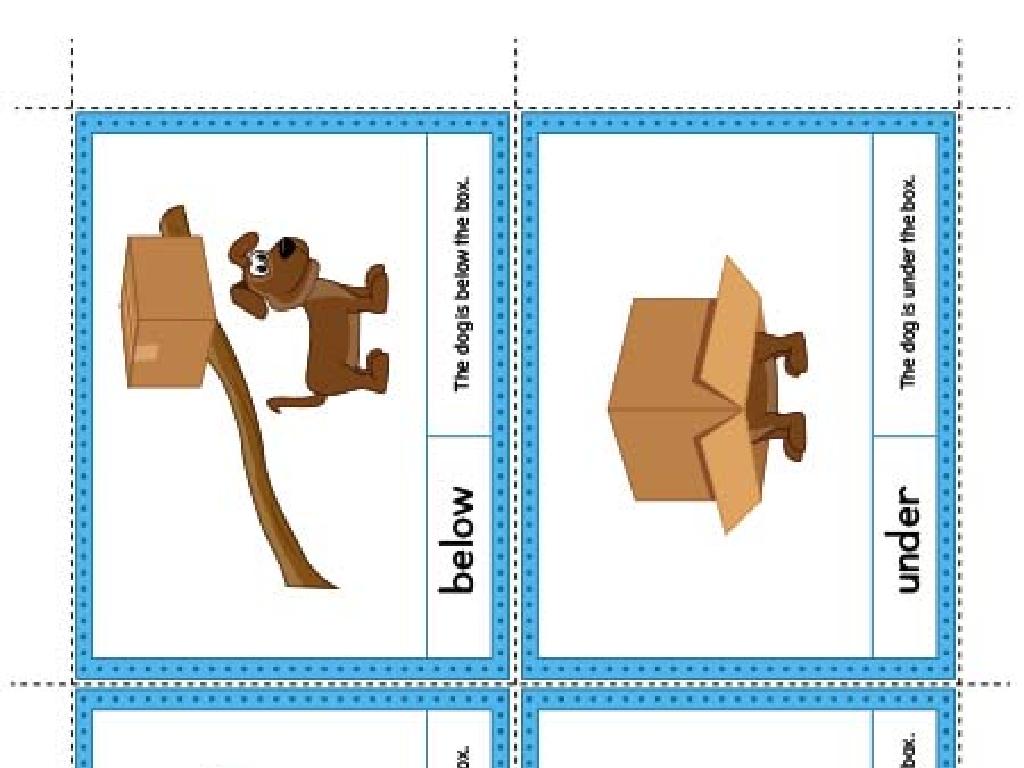Determine The Meanings Of Words With Greek And Latin Roots
Subject: Language arts
Grade: Eighth grade
Topic: Greek And Latin Roots
Please LOG IN to download the presentation. Access is available to registered users only.
View More Content
The Power of Greek and Latin Roots
– Unveiling English building blocks
– Defining Greek and Latin roots
– Roots are word parts that carry basic meaning from which words grow.
– Significance in English language
– Over 60% of English words have Greek or Latin roots; they are key to understanding unfamiliar words.
– Enhancing vocabulary with roots
– Knowing roots helps decipher meanings of new words and expands word mastery.
|
This slide introduces the concept of Greek and Latin roots, which are the foundational elements of many English words. Understanding these roots can significantly enhance students’ vocabulary and comprehension skills. By recognizing these common roots, students can begin to decode the meaning of complex vocabulary they encounter in various subjects. Emphasize the prevalence of these roots in the English language and encourage students to become word detectives, looking for familiar roots in new words they learn. Provide examples of roots and derived words, and explain how a single root can give rise to multiple words with related meanings. This foundational knowledge will be a valuable tool for students as they encounter increasingly challenging texts.
The Power of Roots in English Language
– Roots: Core of English vocabulary
– Combining roots with affixes
– Prefixes/suffixes modify root meanings
– Common Greek and Latin roots
– ‘bio’ means life, ‘geo’ means earth
– Deciphering words using roots
– Use roots to understand unfamiliar words
|
This slide introduces the concept of roots, which are the basic building blocks of many English words, particularly those derived from Greek and Latin. Understanding roots can greatly enhance vocabulary and comprehension. Students will learn how roots can be combined with prefixes and suffixes to alter or refine their meanings. Provide examples of common roots such as ‘bio’ (life) and ‘geo’ (earth), and show how these roots form the basis of words like ‘biology’ and ‘geography’. Encourage students to use their knowledge of roots to deduce the meanings of new or unfamiliar words, enhancing their reading and interpretation skills. This foundational knowledge will be crucial for their language arts development.
Exploring Greek Roots in English
– ‘bio’ signifies life
– Biology: study of life
– ‘geo’ relates to earth
– Geography: study of Earth’s surface
– ‘phon’ denotes sound
– Symphony: harmony of sounds
|
This slide introduces students to the concept of Greek roots in English vocabulary, which helps in understanding the meaning of complex words. ‘Bio’ is a common root that appears in words related to life and living organisms, such as biology, biography, and biome. ‘Geo’ is used in words that pertain to Earth and its study, evident in terms like geography and geology. ‘Phon’ is found in words associated with sound, such as symphony, phonetics, and microphone. Encourage students to think of other words that use these roots. This understanding can help them deduce the meanings of unfamiliar words they encounter in their reading.
Exploring Latin Roots
– ‘aqua’ means water
– Example: ‘Aquarium’ – a place with water for aquatic life
– ‘scrib’ means write
– Example: ‘Describe’ – to write down an account of something
– ‘port’ means carry
– Example: ‘Transport’ – to carry goods or people from one place to another
|
This slide introduces students to the concept of Latin roots, which are the building blocks of many words in the English language. Understanding these roots can help students decipher the meaning of unfamiliar words. ‘Aqua’ is a common root that appears in words related to water. ‘Scrib’ is found in words associated with writing. ‘Port’ is often seen in words that have to do with carrying or moving. Encourage students to think of other words that contain these roots and discuss how the meaning of the root fits into the meaning of the word. This will help them build a more robust vocabulary and enhance their reading comprehension skills.
Decoding Words with Greek and Latin Roots
– Strategies for new word meanings
– Break down words into roots and affixes
– Use roots to grow vocabulary
– Roots as word foundations; add prefixes/suffixes
– Practice with ‘telegraph’
– ‘Telegraph’: analyze ‘tele’ (distance) + ‘graph’ (write)
– Understanding ‘tele’ and ‘graph’
|
This slide aims to equip students with strategies to decode unfamiliar words by understanding their Greek and Latin roots. Emphasize the importance of breaking down words into their root components and affixes to uncover meaning. Illustrate how a strong root vocabulary can help students deduce the meaning of new words. Use ‘telegraph’ as a practice word, explaining that ‘tele’ means ‘far off’ or ‘at a distance,’ and ‘graph’ means ‘to write.’ This combination reflects the function of a telegraph, which is to write or send messages over a distance. Encourage students to apply this strategy to other words with the same roots to reinforce their learning and vocabulary expansion.
Class Activity: Crafting Words with Roots
– Invent words with Greek/Latin roots
– Explain your words to the class
– Combine roots with prefixes/suffixes to create new terms
– Discuss roots’ role in text comprehension
– How do roots aid in deciphering difficult words?
– Engage in peer discussion
|
This activity is designed to deepen students’ understanding of Greek and Latin roots and their importance in the English language. Students will use their creativity to combine different roots with prefixes and suffixes to form new words. They will then share these words with the class, explaining the meaning based on the roots used. This exercise will help students see the practical application of root knowledge in understanding complex vocabulary. Encourage students to think about how this skill can help them in other subjects and in interpreting advanced texts. Possible activities: 1) Word invention contest, 2) Group collaboration to create a story using the new words, 3) Peer teaching where students explain roots to each other, 4) Root word ‘family tree’ to show how many words can come from a single root, 5) Creative writing using words with common roots.
Wrapping Up: Greek and Latin Roots
– Recap: Why Roots Matter
– Homework: Discover 5 Root Words
– Find words with Greek or Latin origins and their meanings.
– Decode Words by Roots
– Use the roots to understand word meanings.
– Next Class: Roots Quiz Prep
– Review roots and examples for the quiz.
|
As we conclude today’s lesson, remind students of the significance of understanding Greek and Latin roots in enhancing their vocabulary and comprehension skills. For homework, students are tasked with finding five words that have Greek or Latin roots, along with their meanings, which will reinforce their learning and prepare them for the upcoming quiz. Encourage them to use dictionaries or online resources to assist in their discovery. The next class will include a quiz, so students should review the roots discussed in class and practice with additional examples to ensure they are well-prepared.






